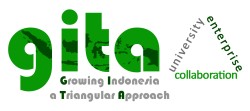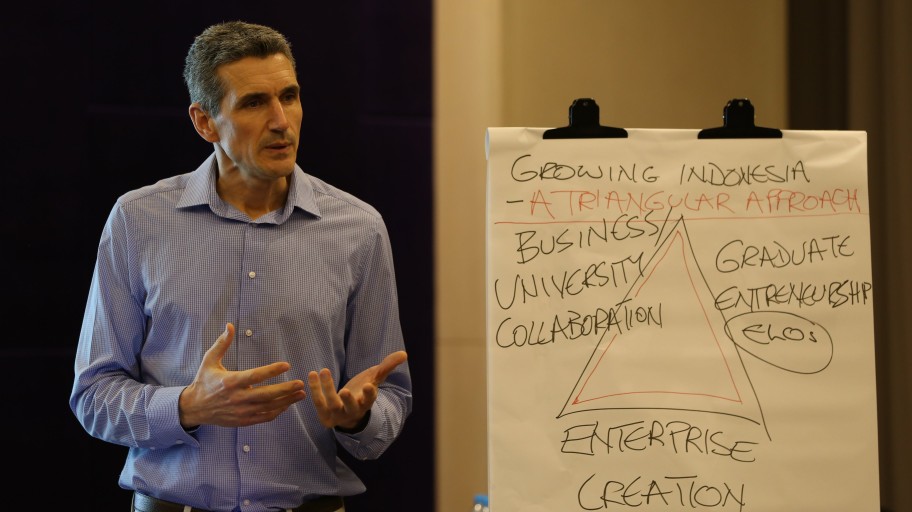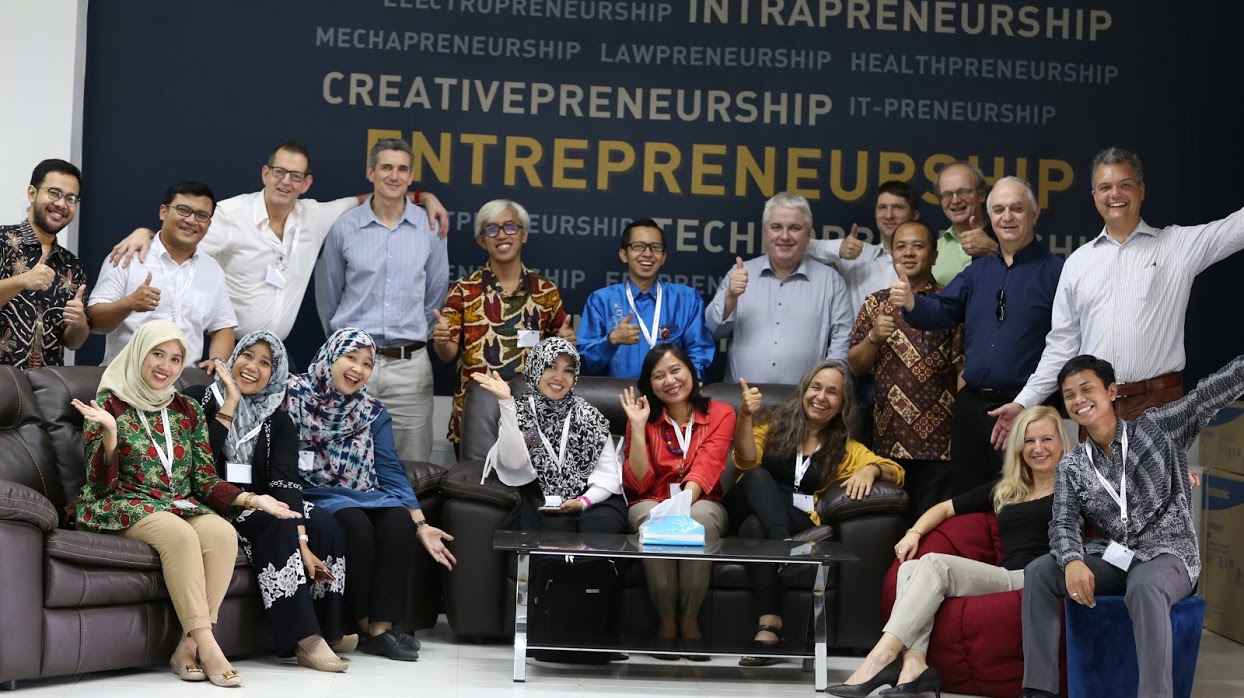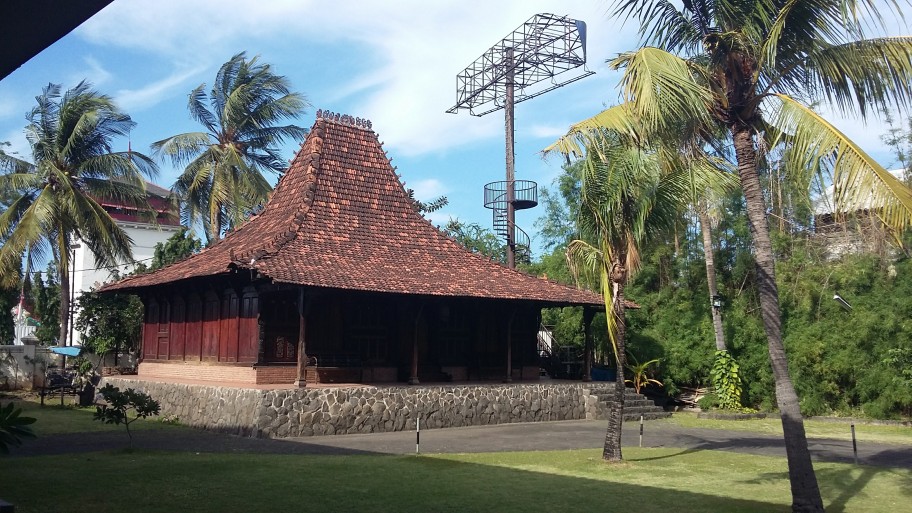
GITA – Growing Indonesia – a Triangular Approach
With a population of over 260 million, Indonesia is Southeast Asia’s largest economy and the world’s fourth most populous nation. Current support for start-ups is fragmented and there is a need for a more coordinated approach by educational institutions, government bodies and industry in building Indonesia’s entrepreneurial capacity and in reducing reliance on foreign labour as well as outward economic migration.
The Growing Indonesia – a Triangular Approach (GITA) project integrates business – university collaboration, graduate entrepreneurship and enterprise creation and operates at a national, regional, local, institutional and programme level.
Objectives

The project is creating a growing network of Growth Hubs across Indonesia aimed at embedding entrepreneurship education into University curricula and providing support services to local entrepreneurs and start-up businesses. These hubs are physical spaces with an incubation facility for cultivating innovation and exploiting new ideas applied to the local and regional economies.
The creation of Growth Hubs is the central and outward facing component of the innovative Growing Indonesia Triangular Approach (GITA) that integrates business-university collaboration, graduate entrepreneurship and enterprise creation in a strategic way to embed entrepreneurial thinking and activity across all organisational levels.
GeSoB was assigned as External Evaluator to oversee the progress and the quality of the outcomes and contributed a seasoned membership to the steering group.
Project duration
Oktober 2017 – Oktober 2020
Web
Homepage: www.gitaproject.eu
Facebook: www.facebook.com/growingindonesia
Twitter: www.twitter.com/GITAprojectEU
Hashtag: #growingindonesia
Project Partners
- Universität Gloucestershire, Great Britain
- Fachhochschule des Mittelstands (FHM), Germany
- Universität Innsbruck, Austria
- Badan Wakaf University Islam Indonesia, Indonesia
- Universitas Negeri Semarang, Indonesia
- Universitas Ahmad Dahlan, Indonesia
- Universitas Pajajaran, Indonesia
Funding

This project has been funded with support from the European Commission. This communication reflects the views only of the author, and the Commission cannot be held responsible for any use which may be made of the information contained therein.



